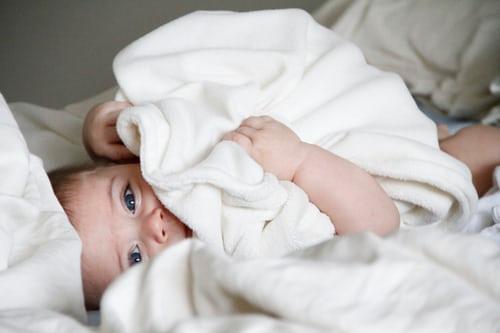What is respiratory syncytial virus (RSV) in children? RSV is a viral illness that causes symptoms such as trouble breathing. It's the most common cause of inflammation of the small airways in the lungs (bronchiolitis) and pneumonia in babies. Initial signs of RSV are similar to mild cold symptoms, including congestion, runny nose, fever, cough and sore throat. Very young infants may be irritable, fatigued and have breathing difficulties. Most children get RSV before two years of age. Infection is easily spread in young children because of their close contact with other children who may be infected, through the sharing of their toys and constant touching of objects that may be contaminated with the virus. Normally these symptoms will clear up on their own in a few days. RSV goes away on its own in one to two weeks. You should call your doctor if you or your child is having trouble breathing, has poor appetite or decreased activity level, cold symptoms that become severe, or a shallow cough that continues throughout the day and night. Antibiotics are not used to treat viral infections, including those caused by RSV. (Antibiotics may be prescribed, however, if testing shows you or your child has bacterial pneumonia or other infection.).
Source https://www.cedars-sinai.org ; https://my.clevelandclinic.org; https://www.lung.org












